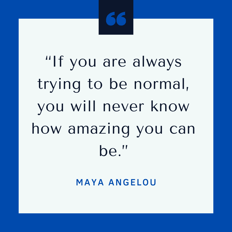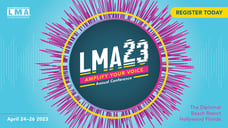Be Unprofessional
![]()
 There was a time when women couldn’t show their ankles in public. When people used the term “limbs” instead of “legs” for propriety’s sake. When men had to grow their beards out to cover their manly thighs (limbs, my apologies), lest the ladies lost their cool.
There was a time when women couldn’t show their ankles in public. When people used the term “limbs” instead of “legs” for propriety’s sake. When men had to grow their beards out to cover their manly thighs (limbs, my apologies), lest the ladies lost their cool.
I made the last one up, but the point stands. We’ve left those and many other goofy social mores behind. Most people would say we’re the better for it. But we’ve replaced them with silly ones of today — including in B2B writing.
This is the era of blandness. Of same-old, same-old. Of robotic voices and stilted, highfalutin language.
Why Professionalism Has Ruined B2B Writing
Why does this abnormally bad norm persist? Because we’re consumed with the desire to sound “professional.” We equate “professional” with a limited slice of language. We believe the foremost way to establish ourselves as experts, as believable, as the “real deal,” is to write like a lawyer with an alphabet behind her name.
In the middle of this desperation to be taken seriously, we lose sight of the bondage our “professionalism” creates. It is the epitome of playing it safe: no personality, no memorable, distinguishable voice, and no relatability.
I think the cult of professionalism is prime real estate for the ROI equivalent of an abandoned strip mall. It’s often the death knell of marketing aims, a saboteur of brand loyalty, and a haze-inducer to your message. The words are there, but nobody cares.
I can’t tell you the number of projects I’ve worked on during which the clients say, “We need to stop sounding like everybody else. It’s all been said before. We want to tell OUR story. We want to reach people.” And so on. They realize they can’t count on differentiators to stand apart in a land of 50,000 products per grocery store, 200,000 custom development shops, and endless Amazon search results. They need B2B to become human-to-human or they’ll pass away like a covered ankle.
Without that understanding (and sometimes despite that knowledge), as soon as they get a glimpse of “human” in their web copy or email sequence or blog post or white paper, many shriek and huddle under the professional covers. Personality is edited out. Unique voices are assassinated — death by committee. The stakeholders rein the “unprofessional” in, and everything goes back to normal, including their growth and retention rates. Their marketing ROI. Their hamster wheel of frustration.
What If Being Unprofessional Is the Best Way to Be Professional?
What if we’ve bought into a rule that’s hollow — a false promise? The business equivalent of “Don’t swim for thirty minutes after eating?” What if meeting people exactly where they are means we meet them like a kind neighbor instead of a uniformed crossing guard?
I’m not calling for inconsiderate or obscene language, or shock value only. I think there’s a time and a place for business in the front and no party in the back. What I do mean is challenging, on a fundamental level, the belief that success can only be built on a sanitized message faking a perfect world in which no sentences end with a preposition. That respectability is confined to academic language, rote information, and cut-and-dried aspiration.
Maybe being “unprofessional” is the best way to reach your ideal clients.
Could being “unprofessional” actually solidify you as the most capable, agile, approachable option?
What if being “unprofessional” — on top of making your message more visible — means your team experiences more fulfillment on the job, more freedom for creative solutions, and automatic rapport with your clients?
It’s worth considering.
The most meaningful conversations you’ve ever had don’t stand out because of the level of diction. They were personal. They were accessible. They met you exactly where you were and pointed you to where you wanted to be. And they changed your life.
How can you do the same for your clients?
Check out the rest of this series:
How to Make B2B Writing More Compelling Part 1: Show Don’t Tell
How to Make B2B Writing More Compelling Part 2: Drop the Jargon
Going to LMA23 in Hollywood, Florida? Come visit us in booth 404, April 24 to Aril 26, 2023.




